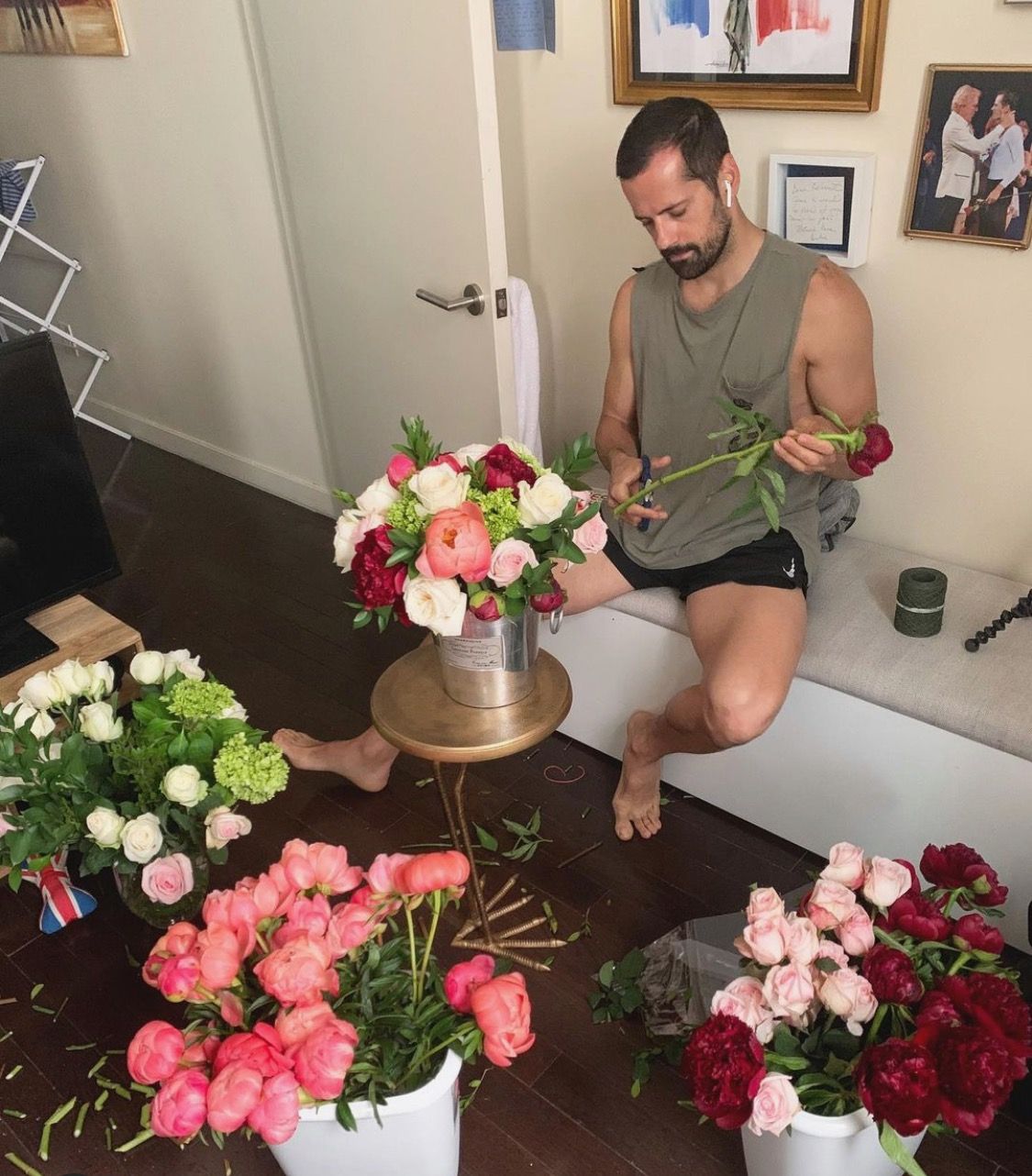When it became clear the pandemic would not be over quickly, producer Sally Cade Holmes ramped up her search for additional income streams.
Holmes, who had decided in early 2020 to leave Tom Kirdahy Productions and focus on her own theatrical producing, turned to real estate, first as an investment option and then as an agent.
“It feels like a flexible revenue stream,” Holmes said. “You have to work really hard and work a lot of hours, but you’re your own boss. So I can set those hours, and I can continue my relationships with artists.”
Facing a constrained labor market and prolonged theater closures, actors, company managers and producers have found ways to create jobs of their own or find employment in other fields. While many foresee an eventual return to live theater, these jobs allow them to draw upon the skills they’ve learned from working in the arts, while also providing a creative outlet during the shutdown.

In July, actor and dancer Robbie Fairchild received a delivery of peonies and roses from a fan in Holland who wanted to thank him for his performance in the film “Cats.” Fairchild, who had previously taken a flower arranging course in London, quickly got to work creating bouquets and delivering them to health care workers at a nearby hospital.
“It filled this void in me as a performer, being able to be creative and then being able to share that creativity with an audience of the person who receives the arrangement,” Fairchild said. “And so at that moment I said, ‘Hey, let’s go into business.'”
Fairchild launched his floral arrangement company, boo.kay, out of his fourth floor walk-up on the Upper West Side. Each week, he picks up flowers from the local market and then creates and delivers bouquets for customers who place online orders. He also continues to partner with the fan, who works as a flower distributor in Holland, on do-it-yourself flower kits.
As the business has grown, Fairchild has hired five employees, who can now help out deliveries, and moved to a bigger apartment in order to store the flowers and build a walk-in flower refrigerator.
In addition to running boo.kay, Fairchild has been auditioning, directing and choreographing work. He plans to continue working on artistic projects, while growing his business into a sustainable career for his employees.
“I just want to grow the business big enough that it becomes a real source of income for my employees who are all out-of-work Broadway actors,” he said.
With close to industry-wide unemployment, many theatermakers are subsisting on unemployment benefits, while awaiting the return of live theater. Some members have been able to find short-term gigs within the industry, such as work on streamed concerts or virtual teaching, but options are limited.
Outside of the industry, several members of the theater community were able to find short-positions working for political campaigns.
Several months after the “Hamilton” tour was halted in Miami, associate company manager Tyler Siems was hired as voter activation regional director in Michigan, where he worked as part of the Biden campaign.
As part of the job, Siems drove a Biden-branded van around east Michigan and handed out merchandise at campaign rallies this fall.
Siems, who plans to return to the “Hamilton” tour when it resumes, was encouraged to apply to the job by Kaitlin Fine, a former company manager for “Hamilton” who worked as the Ohio Operations Director in coordination with the Biden campaign and the state’s democratic party.
Fine had been looking for a career change after “Hamilton” ended its Chicago run in January, but was still daunted to enter a new field after 10 years of working in the theater industry. Once she began, she found that her prior experience as a company manager — which included managing payroll and paying the bills as well as communicating with company members — lent itself well to the political world.
“We have all of these extremely valuable skills just in the way that we communicate as people,” Fine said. “And it was really exciting and frankly confidence-boosting to be able to go into this new setting and feel like all of this is brand-new, and yet, I am comfortable doing it.”
Holmes too found that the real estate market looked similar to the world of theatrical producing, particularly when it came to deal structures and crafting narratives around a property.
After taking a 75-hour course online and passing a final licensing and then state exam, Holmes obtained her real estate license. She is now prepared to sell properties in Kingston, New York, where she hopes to capitalize on the trend of New Yorkers moving upstate, while also continuing to develop theater projects.
While the pandemic may have accelerated her involvement in real estate, Holmes notes that her profession typically requires some form of supplemental income.
“I think in the back of my mind, there’s also been this kind of nagging that it’s really hard to be an independent producer who isn’t of means already,” Holmes said.


























































